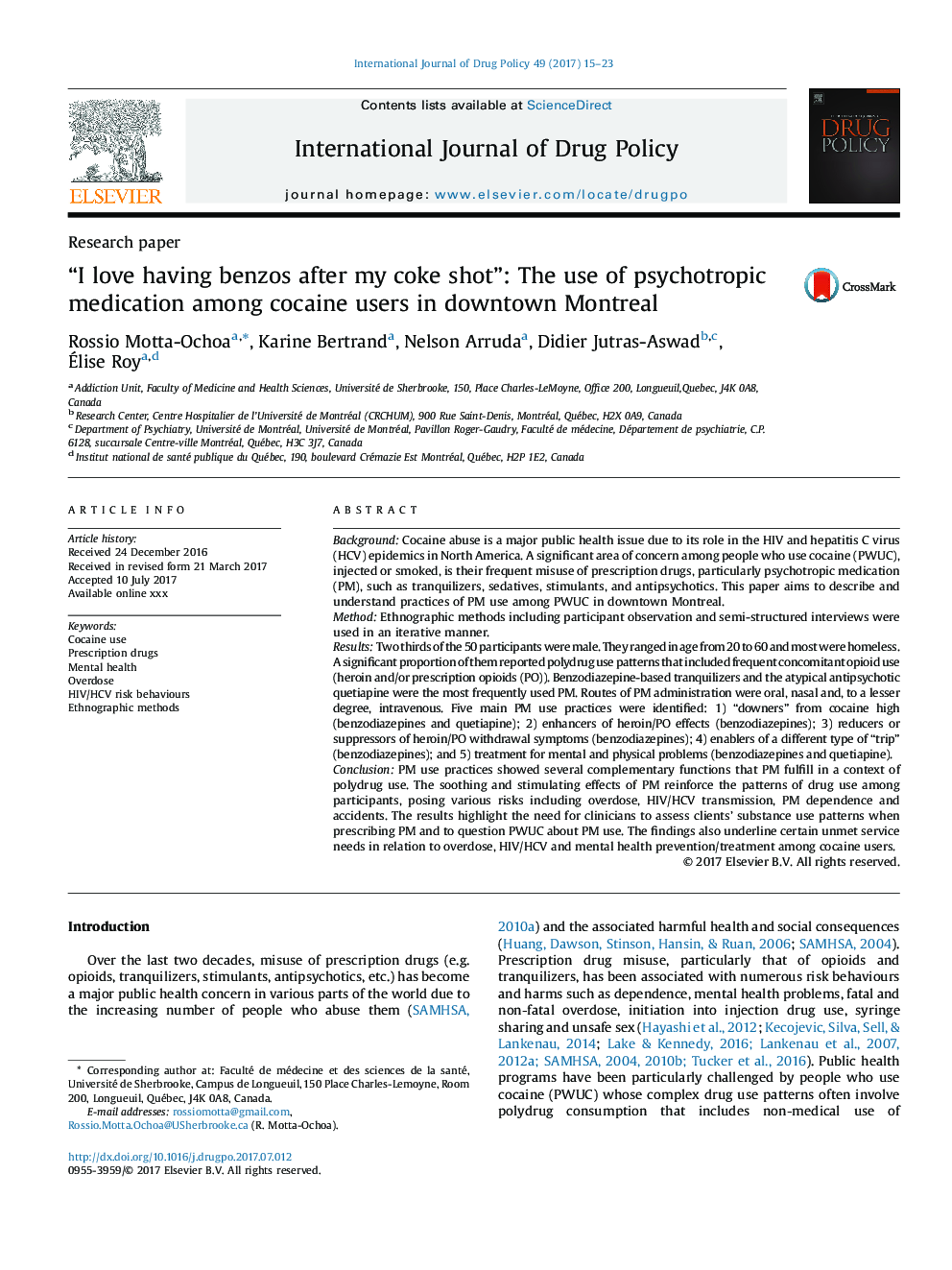| کد مقاله | کد نشریه | سال انتشار | مقاله انگلیسی | نسخه تمام متن |
|---|---|---|---|---|
| 5120699 | 1486256 | 2017 | 9 صفحه PDF | دانلود رایگان |
BackgroundCocaine abuse is a major public health issue due to its role in the HIV and hepatitis C virus (HCV) epidemics in North America. A significant area of concern among people who use cocaine (PWUC), injected or smoked, is their frequent misuse of prescription drugs, particularly psychotropic medication (PM), such as tranquilizers, sedatives, stimulants, and antipsychotics. This paper aims to describe and understand practices of PM use among PWUC in downtown Montreal.MethodEthnographic methods including participant observation and semi-structured interviews were used in an iterative manner.ResultsTwo thirds of the 50 participants were male. They ranged in age from 20 to 60 and most were homeless. A significant proportion of them reported polydrug use patterns that included frequent concomitant opioid use (heroin and/or prescription opioids (PO)). Benzodiazepine-based tranquilizers and the atypical antipsychotic quetiapine were the most frequently used PM. Routes of PM administration were oral, nasal and, to a lesser degree, intravenous. Five main PM use practices were identified: 1) “downers” from cocaine high (benzodiazepines and quetiapine); 2) enhancers of heroin/PO effects (benzodiazepines); 3) reducers or suppressors of heroin/PO withdrawal symptoms (benzodiazepines); 4) enablers of a different type of “trip” (benzodiazepines); and 5) treatment for mental and physical problems (benzodiazepines and quetiapine).ConclusionPM use practices showed several complementary functions that PM fulfill in a context of polydrug use. The soothing and stimulating effects of PM reinforce the patterns of drug use among participants, posing various risks including overdose, HIV/HCV transmission, PM dependence and accidents. The results highlight the need for clinicians to assess clients' substance use patterns when prescribing PM and to question PWUC about PM use. The findings also underline certain unmet service needs in relation to overdose, HIV/HCV and mental health prevention/treatment among cocaine users.
Journal: International Journal of Drug Policy - Volume 49, November 2017, Pages 15-23
